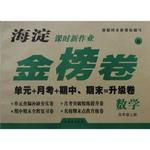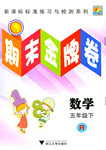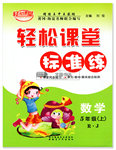题目内容
Dragon Head-Raising (龙抬头) Day is a traditional Chinese festival. It comes on the1 day of the second lunar (农历的) month. In 2010, it is2March 7.
On the day in ancient times, people put paths of ashes (灰) into kitchens and around water vats (缸). This was3the dragon into the house.
On this day people eat noodles, dumplings and fried pancakes. All the day’s foods are 4after dragons. For example, people eat “dragon whisker (龙须)”5called “dragons teeth”.
In some ancient Chinese stories, dragons have power over the wind and rain. They often6rain to the world on the second day of the second lunar month.
It is said that after that day there will be more and more rain. This is7the day is often called “Spring Dragon Day”. It was hoped that8the help of the dragon, ploughing (耕种) would be easier and the autumn would bring a good harvest.
It was said that a haircut during the first lunar month brought9luck to the uncles in family. This is why you still see many people10their hair cut on Dragon Head-Raising Day.
- 1.
- A.first
- B.second
- C.third
- D.fourth
- A.
- 2.
- A.in
- B.at
- C.during
- D.on
- A.
- 3.
- A.led
- B.lead
- C.to lead
- D.be led
- A.
- 4.
- A.named
- B.naming
- C.calling
- D.to call
- A.
- 5.
- A.noodle and dumpling
- B.noodles and dumpling
- C.noodles and dumplings
- D.noodle and dumplings
- A.
- 6.
- A.bring
- B.take
- C.carry
- D.lend
- A.
- 7.
- A.because
- B.why
- C.when
- D.that
- A.
- 8.
- A.under
- B.in
- C.with
- D.by
- A.
- 9.
- A.good
- B.bad
- C.better
- D.worst
- A.
- 10.
- A.was getting
- B.to get
- C.got
- D.getting
- A.
1.生活常识,二月二是二月的第二天
2.具体到某一天用介词on
3.动词不定式作表语作计划安排
4.be named被“命名”,所有的命名都与龙有关
5.此题考查名词的数,dumpling和noodle都是可数名词
6.考查动词补语take…to…把某物带给某人
7.考查连词because表示原因
8.考查介词with,固定短语结构with the help of sb在某人的帮助下
9.生活常识正月理发给人带来坏运气(按照中国风俗)
10.固定短语see sb doing sth看到某人正在做某事

 海淀课时新作业金榜卷系列答案
海淀课时新作业金榜卷系列答案 期末金牌卷系列答案
期末金牌卷系列答案 轻松课堂标准练系列答案
轻松课堂标准练系列答案
| |||||||||||||||||||||||||||||||||||||||||||||||||||||||||||||||||||||||||||||||||||||||||||||||||||||||||||||||||||||||||||||||||||||||||||||||
Dragon Head-Raising (龙抬头) Day is a traditional Chinese festival. It comes on the 46 day of the second lunar (农历的) month. In 2010, it is 47 March 7.
On the day in ancient times, people put paths of ashes (灰) into kitchens and around water vats (缸). This was 48 the dragon into the house.
On this day people eat noodles, dumplings and fried pancakes. All the day’s foods are 49 after dragons. For example, people eat “dragon whisker (龙须)” 50 called “dragons teeth”.
In some ancient Chinese stories, dragons have power over the wind and rain. They often 51 rain to the world on the second day of the second lunar month.
It is said that after that day there will be more and more rain. This is 52 the day is often called “Spring Dragon Day”. It was hoped that 53 the help of the dragon, ploughing (耕种) would be easier and the autumn would bring a good harvest.
It was said that a haircut during the first lunar month brought 54 luck to the uncles in family. This is why you still see many people 55 their hair cut on Dragon Head-Raising Day.
| 【小题1】 |
|
| 【小题2】 |
|
| 【小题3】 |
|
| 【小题4】 |
|
| 【小题5】 |
|
| 【小题6】 |
|
| 【小题7】 |
|
| 【小题8】 |
|
| 【小题9】 |
|
| 【小题10】 |
|
Dragon Head-Raising (龙抬头) Day is a traditional Chinese festival. It comes on the 46 day of the second lunar (农历的) month. In 2010, it is 47 March 7.
On the day in ancient times, people put paths of ashes (灰) into kitchens and around water vats (缸). This was 48 the dragon into the house.
On this day people eat noodles, dumplings and fried pancakes. All the day’s foods are 49 after dragons. For example, people eat “dragon whisker (龙须)” 50 called “dragons teeth”.
In some ancient Chinese stories, dragons have power over the wind and rain. They often 51 rain to the world on the second day of the second lunar month.
It is said that after that day there will be more and more rain. This is 52 the day is often called “Spring Dragon Day”. It was hoped that 53 the help of the dragon, ploughing (耕种) would be easier and the autumn would bring a good harvest.
It was said that a haircut during the first lunar month brought 54 luck to the uncles in family. This is why you still see many people 55 their hair cut on Dragon Head-Raising Day.
| 【小题1】 |
|
| 【小题2】 |
|
| 【小题3】 |
|
| 【小题4】 |
|
| 【小题5】 |
|
| 【小题6】 |
|
| 【小题7】 |
|
| 【小题8】 |
|
| 【小题9】 |
|
| 【小题10】 |
|